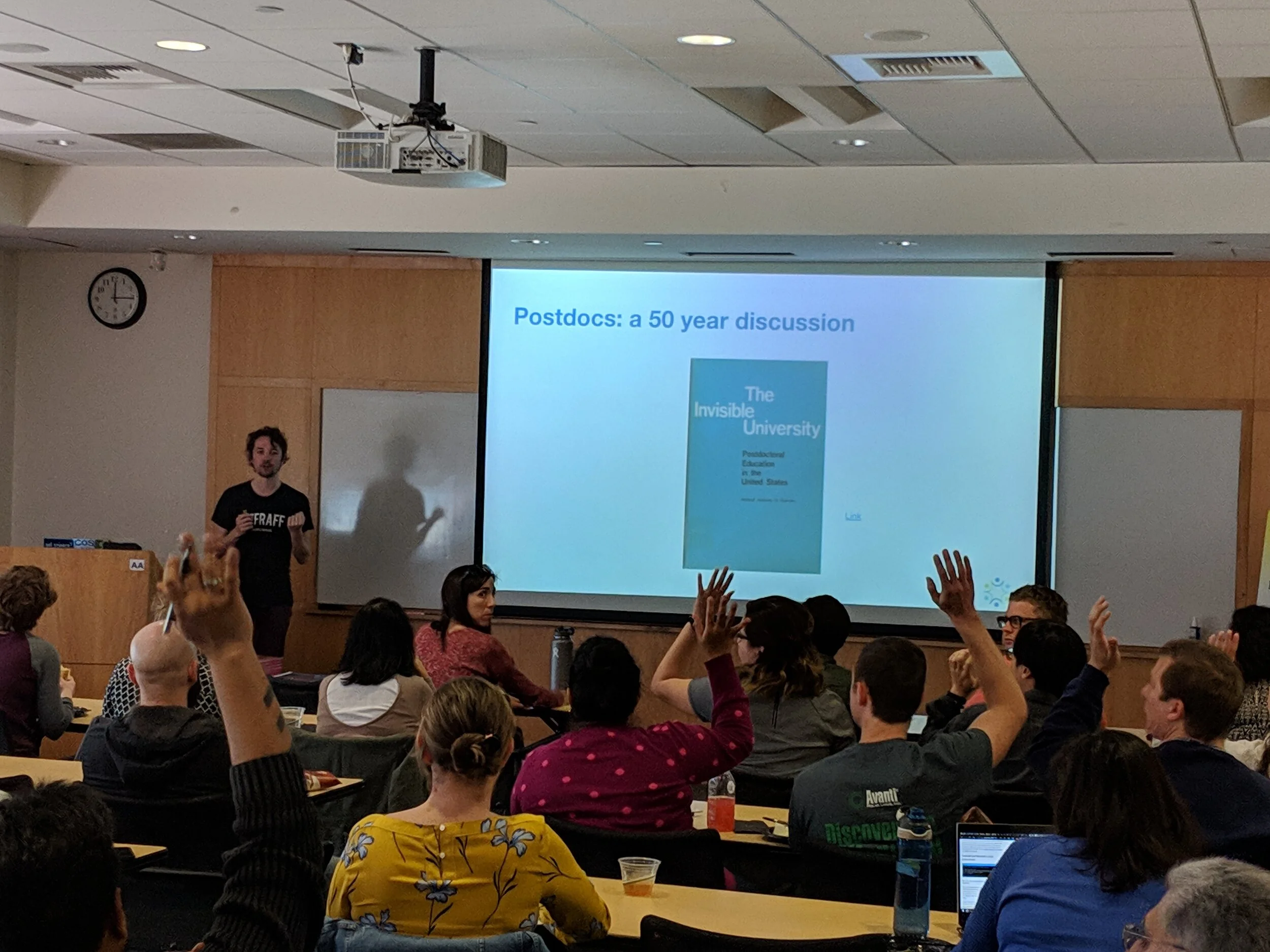How do early career researchers become “independent”?
When an early career researcher is moving through academic training, their time as a PhD student generally teaches them how to do research; whereas a postdoc is the time for them to learn how to lead a research effort, and in particular, start to think about framing their long-term question.
However, a conflict exists: early career researchers are the primary labor force driving scientific research forward. The focus on generating data can take priority over training in leading a research group.
One issue which the late Ben Barres wrote about in an opinion piece in Nature relates to the fact that many researchers are staff on someone else’s grant. They are often doing work proposed before they were even hired. This means they cannot take this work with them to start their own labs, creating a fundamental barrier to what should be the true purpose of the postdoc position. This led Barres to state:
““I think it’s time for the academic community to start openly discussing the issue of research freedom for postdocs (or lack of it)“.
While I was working at Future of Research, I became interested in the topic of independence and how researchers attain it. To discuss the topic with early career researchers, and get feedback on their opinions on the subject, I led workshops at 4 locations in the U.S. and Japan. I followed a model I found to be very popular: after a brief intro to give context for the problem, I would ask participants to break out into groups to discuss and list the issues they faced in gaining independence; and then after they discussed these problems with the whole room, I asked them to break into groups again and come up with solutions! It’s a format from the very first Future of Research meeting that I use a lot, because it gives us a lot of input on how to think about and address these topics, and participants enjoy the opportunity to vent their frustrations, but also leave the room feeling positive about actions that they can take.
Gary McDowell leading a workshop with early career researchers at University of California Irvine. Photo courtesy of Harinder Singh.
Colleagues at Future of Research helped me to analyze the data and discuss the outcomes. We have just published this preprint, which we will be discussing on July 1st 2020 (register here!) with the National Postdoctoral Association’s community.
In brief, participant responses were broken down into 6 areas:
Participants gave examples of how their independence is actually “discouraged”’;
They spoke about the difficulty in accessing career development data and resources;
They cited a lack of formal mentorship training as a barrier;
Particular barriers that are faced by international scholars were highlighted;
They pointed to the distractions and barriers caused by inadequate salaries and benefits provision; and
They raised issues highlighting a misalignment of their values and priorities with the academic system and culture.
Participants provided solutions to these various problems, and from this we distilled a set of recommendations for early career researchers; faculty and research groups; and funding agencies, which we discuss in the preprint (you can find a summary of the barriers, solutions and recommendations for increased independence in this handout too).
We put these recommendations in context with recommendations from a host of blue-ribbon panels, or with examples of changes being made in these spaces. These recommendations may not originally have focused specifically on helping researchers achieve independence, but certainly can address some of the issues raised by workshop participants.
Lastly, we asked - should everyone be “independent”? Is the push for independence and identifying individual contributions a barrier to collaborative efforts? We pose the thought that perhaps a better term is “agency”, and that agency can be a more widely applied concept, especially in attempting to dismantle barriers that are largely derived from gatekeeping effects.
Do you have thoughts? Please let us know! You can contact me here to let me know what you think, to let me know if there are ideas that we have missed, or to ask any questions. The paper is currently up as a preprint precisely to get feedback and discussion about this topic!

